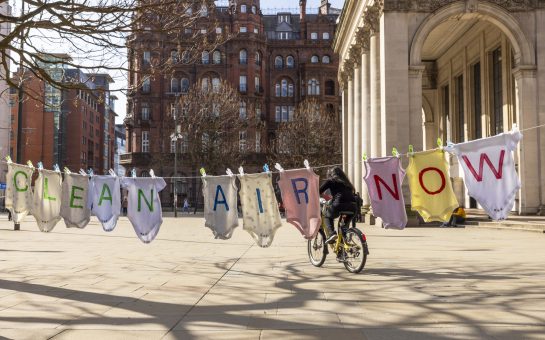Unemployment in the North West has risen despite other parts of the UK experiencing high rates of people going back to work.
The figures from The Office of National Statistics on Wednesday revealed that unemployment has risen by 24,000 people, with 8.6% of the region now out of work.
The figures are a further blow to the region after the department released statistics in March that 85,200 people in Manchester were claiming Jobseeker’s Allowance in January, an increase of 3.8% since December.
Lynn Collins, North West TUC Regional Secretary, said: “The North West is feeling the effects of the government’s austerity agenda. It’s clear proof that more needs to be done and that the government’s plans just aren’t working.
“Despite cutting public sector jobs and the slow growing economy that isn’t creating the jobs the government predicted, the coalition seems to have run out of ideas.
“We need an alternative economic model that delivers good sustainable jobs and we need a jobs guarantee for every unemployed young person.”
The figures were good news for the UK as a whole with the number of people claiming unemployment benefit falling at its fastest rate since 1997 with the jobless total decreasing through the summer by 18,000 now standing at 2.49million.
Yet unemployment in Manchester still stands at 6.3%, only slightly higher than the national average of 7.7%.
This is much lower compared to other parts of the borough such as Altrincham which only has a 2.2% unemployment rate.
Baron Frankal, Director of Economic Strategy at New Economy, remains optimistic however that as a whole, job rates have improved and will increase due to numerous projects in the city.
He said: “As a whole, unemployment levels across Greater Manchester remain higher than the national average.
“Investment in infrastructure will continue to be the key in reducing this gap and the ongoing extension of the Metrolink network, as well as projects such as Noma, Airport City and the Graphene Institute should help to boost jobs in the long-term.
“HS2 is far away, but all this builds up the confidence factor. If companies think Manchester is open for business they will be that much more inclined to hire.”
However with winter fast approaching and soaring energy prices looking inevitable, Lynn Collins argued: “A rise in unemployment comes on top of a cost of living crisis, with rising costs alongside real term wage cuts and an increase in the use of food banks and pay day lenders.
“It’s difficult for anyone to claim that this is working for people in the North West.”
Image courtesy of Helen Cobain via Flickr, with thanks.
For more on this story and many others, follow Mancunian Matters on Twitter and Facebook.



